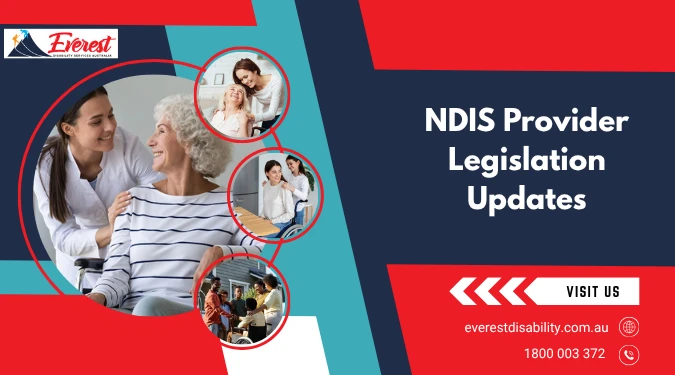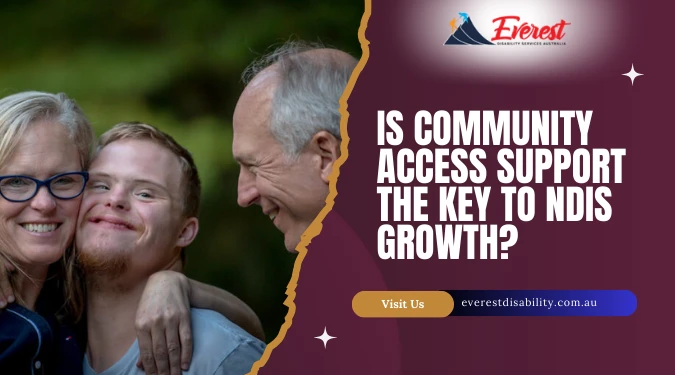The most recent modifications to Australia’s NDIS laws for providers, which go into force in late 2024 and continue until 2025, drastically alter participant experiences and operational needs. The changes are intended to increase the quality of disability support services in Sydney provided under the program, improve financial sustainability, and streamline procedures.
Key Changes Affecting The Providers
New regulations about eligibility, pricing, registration, claims and payments, and NDIS providers will be implemented:
Timeframes for Claims and Payment:
As of October 3, 2024, all providers are required to file claims within two years of assisting; claims filed after this time will not be considered. During a 12-month transition, the NDIA is honouring claims submitted before October 2024; however, continuing claims must adhere to this stringent timeframe. Workflows should be set up by providers to guarantee on-time submission, automate reporting, and reject invoices that are more than 24 months old.
Flexibility and Plan Funding:
Participant plans have changed to a more transparent, all-inclusive budget model, often for a year, but some requirements may call for shorter timeframes. This modification encourages financial flexibility, allowing participants greater control over the use of their money, and calls on providers to work more closely with clients in order to properly customise solutions.
Eligibility Through Impairment Notices:
To make it clear who is eligible for the program, participants who fulfil requirements or switch to updated frameworks will receive impairment notices. Providers need to update their reporting and comprehend these new eligibility requirements.
More on Impairment Notices:
All NDIS participants now receive an official impairment notice when their plan is approved or reviewed. This document lists the functional deficits (physical, psychosocial, and cognitive) that made the individual eligible for the program.
Why is it important?
Supports must now be tied to these identified deficits. Despite the participant’s insistence, funding cannot be used for unrelated requirements any more.
Plan managers’ next steps
- Request a copy of the impairment notice for each participant.
- Verify invoices against the impairments indicated.
- Anything that doesn’t fit the participant’s access requirements should be flagged.
- Encourage participants to submit comments to improve services
Section 44(3) and 74(6): explains in detail what the NDIA must and cannot take into account when determining whether a specific plan management type carries an undue risk. Participants who utilise a registered plan manager or self-manage are affected. This applies to both old and new framework plans.
These are some of the major changes made to disability support service in Sydney. If you are a new participant looking to hire support workers and fund relevant disability support, you must be aware of these changes.
You can always hire a support worker to help you with a simpler understanding of NDIS services. For example, reach out to support workers in Everest Disability Services Australia Pty Ltd who can navigate the process for you. Reach out to us by dialling 1800 003 372 for a quick consultation.
FAQs
What New Insurance Requirements Do The Amended Laws Impose On NDIS Providers?
According to updated guidelines, providers must have workers’ compensation, professional indemnity, and public liability insurance to guarantee participant safety.
What Is The Impact On Small Versus Large NDIS providers Of The Four-Tier Provider Registration System?
Higher-tier providers are subject to stricter audits under this approach, which groups providers according to risk and support complexity.
Under The Current Regulations, Are Unregistered Providers Still Permitted To Provide Services?
Although they must abide by the NDIS Code of Conduct, unregistered providers are permitted to deliver a restricted range of services; registration is advised for full access.
For Employees Providing High-Risk Supports, What Particular Training Is Necessary?
Employees must go through more thorough background checks and receive specialist training relevant to their support positions.
What Effects Do The Modifications Have On Capital Supports And Assistive Technology Billing?
Clearer price structures and invoicing requirements for these supports are now part of the pricing arrangements in order to prevent conflicts.
Can Providers Challenge The NDIS Quality And Safeguards Commission’s Rulings?
Yes, providers who disagree with registration or compliance determinations have access to formal review and appeal procedures.
What Actions Should Providers Take If They Are Discovered To Be In Violation Of The New Law?
Resolving problems requires immediate corrective action, reporting to the Commission, and improved staff training.
Under The New Regulations, Do Therapy Providers Have To Make Changes To Travel Claims?
Yes, in order to be paid, travel claims need to meet certain requirements for both categories and supporting documents.









